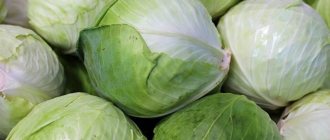There are many versions of how to properly store chicken eggs. However, these rules are clearly defined by GOST and SanPiN. As well as the criteria and standards by which their freshness is determined. Much depends on the origin of the testicles: are they domestic, or laid by chickens at an industrial enterprise. Affects parameters and environment. Or rather, where to keep it: in the refrigerator or indoors. In the article you will find out what the shelf life of chicken eggs is under certain conditions.
How to store chicken eggs according to GOST
In Moscow and other cities of the Russian Federation, the shelf life of products is determined by GOST. According to paragraph 8 R 52121-2003, the shelf life of chicken eggs is 90 days.
It can be stored for 3 months if the recommended temperature is maintained - 0-20 degrees. Also, humidity is important for storage, which should be at least 85% and no more than 88%.
There are special categories for which different deadlines are established, for example:
- for dietary eggs – 7 days;
- for canteens – 25 days,
- for washed ones – 12 days.
In the case when testicles are produced on an industrial scale, the manufacturer, in accordance with sanitary standards (SanPiN), is obliged to stamp each copy. It must indicate the date and time of production.
What to do with eggs in Russia
In our country, Rospotrebnadzor and sanitary and veterinary inspections are responsible for the quality of eggs, which check whether all poultry farms comply with sanitary standards and rules Sanitary rules SP 3.1.7.2616-10. .
Eggs and poultry (as well as other animals) must be regularly examined, and if infected animals are found, they must be vaccinated, processed products and properly combat the infection. Sanitary rules SP 3.1.086-96. Veterinary rules VP 13.4.1318-96. . That is, we are trying to prevent infection even at the production stage. Therefore, eggs you purchase from the countryside may be more dangerous than eggs from a factory. It is not possible to test all households for salmonella.
According to our standards, the shells are not washed. If eggs are intended for long-term storage, they cannot be washed. But you can’t sell dirty ones either, SanPiN 2.3.5.021-94. . Eggs have a strict shelf life.
| Type of eggs | Storage temperature | Shelf life |
| Dietary | from 0 to 20 °C | 7 days |
| Dining rooms | from 0 to 2 °C | no more than 120 days |
| no higher than 20 °C | 25 days |
That is, in Russia you can not put eggs in the refrigerator, but only if for a short time. Rospotrebnadzor, by the way, advises that already purchased eggs should be washed and placed in the refrigerator so that salmonella does not jump all over the refrigerator from the shell to the food and back. Salmonellosis: measures to prevent the disease. . And at the same time, give up fried eggs, soft-boiled eggs and sauces with raw eggs.
Some nuances
Safety of washed specimens
The shelf life of chicken eggs whose shells have been treated with water or a disinfectant solution is lower than that of unwashed eggs. The thing is that during washing the thin protective film on the outside of the egg shell is erased.
Therefore, washed eggs can deteriorate during the storage time allotted for unprocessed ones. However, there are certain nuances here, which are discussed in the article “Is it possible to wash a chicken egg before storing?”
How are pets stored?
Eggs are stored in two ways: using a refrigerator or at room temperature. How long they are ultimately stored is determined based on where they were purchased.
The shelf life of domestic eggs is 90 days. Provided that the temperature does not rise above 5 degrees.
Confidence in the seller is equally important. If the farmer properly cares for the chickens and carefully transports the goods, he can vouch for them. On the other hand, dirt and the slightest damage to the shell significantly reduce the specified period.
If raw eggs were purchased at a retail outlet. And she, in turn, purchased them from an industrial poultry farm, then the period is reduced by three times.
They can be stored indoors for up to 20 days.
Boiled
At high exposure temperatures, the shelf life is greatly reduced. And it is 14 days.
It is important to pay attention to whether the integrity of the hard shell is preserved after cooking. If a crack in the shell is found on a boiled egg, it is recommended to use it no later than 5 days after heat treatment. Otherwise it will spoil.
How to store whipped egg whites with sugar
If it so happened that in the process of preparing a dish, you had to be distracted by some urgent matter, then the whites whipped with sugar can be sent to the refrigerator for a while, covered with a lid (maybe not very tightly). It is better not to transfer the whites anywhere and leave them in the refrigerator in the exact container in which they were whipped. There is no guarantee that they will “wait” for their use there in the same form. How long egg whites (whipped with sugar) can be stored in the refrigerator depends, first of all, on how well they were whipped. Strong foam is obtained if:
- Beat cold egg whites.
- Salt them first.
- Use suitable utensils, ideally copper. If you don’t have one, you can beat the whites in a glass or metal bowl, but in no case in aluminum (as a result of a chemical reaction, the whites will acquire a gray tint). A plastic container is also not suitable for whipping egg whites, since due to the porous surface, a greasy film always forms on it, which will not allow the foam to rise fully.
Factors affecting storage duration
The shelf life of raw eggs is influenced by two factors: the origin and the conditions in which they were kept.
As mentioned above, origin plays a big role in the method of preservation and its duration. Eggs produced in large organizations stay fresh for a shorter period of time than those purchased from a person looking after a small chicken coop.
We described above how long chicken eggs can be stored at room temperature and in the refrigerator. However, there are recommendations aimed at maintaining freshness longer.
Signs of the onset of damage
Stale eggs float quickly when placed in water. This means that they are already more than 3 weeks old. Fresh ones immediately sink to the bottom of a glass of water. The deterioration of the white and yolk is indicated by the accumulation of air inside the egg shell.
This is noticeable when it is translucent. Air already takes up half the space inside the stale product. Spoiled whites and yolks have a specific hydrogen sulfide odor .
Darkened protein also indicates the beginning of spoilage. In eggs that have been boiled and left without shells, the yolk becomes weathered. You shouldn't eat this kind of food either.
Tips for saving money in the refrigerator compartment
Basic
Refrigerator designers often place an egg storage container in the refrigerator door. It is a plastic stand with round holes.
However, keeping eggs in the refrigerator this way is not entirely correct. Because every time you open and close the door, they constantly shake.
This negatively affects freshness retention. In addition, it can lead to damage to the shell, which will significantly shorten the period. If there is a crack, air enters under the shell, facilitating the rapid development of pathogenic bacteria.
Also, when you open the refrigerator door, the temperature inside is sharply disrupted. Frequent temperature changes also affect the condition of the eggs.
It is better to move the tray to the lower drawers. The temperature in this place is less subject to change. Yes, and there will be no shaking of the testicles.
Additional
Contact of eggshells with each other should be avoided. Otherwise they may crack. To avoid this, it is recommended to use a special cardboard or plastic container for storing eggs. In commercial supermarkets they are usually sold there.
The position in which they will be placed in the refrigerator also affects the preservation of the freshness of the eggs. They should be placed with the tapered end down.
It is necessary to ensure that there are no products with a strong, corrosive odor lying nearby.
The table shows the shelf life of chicken eggs in the refrigerator and in different types:
Signs of damage
Fresh eggs should not have any foreign odor. Neither raw nor cooked. The presence of putrid, sour or other unpleasant odor indicates their deterioration.
In its normal state, during heat treatment, the protein should not have any shades other than snow-white. If during the cooking process it acquires a gray or blue tint, it is better not to eat it. These white colors indicate that the egg preservation conditions were not followed. Or their expiration date has passed.
In any case, to avoid food poisoning, it is better to avoid consumption and get rid of any suspicious specimen.
A raw cracked egg can be stored in the refrigerator for no more than 4 days. Better yet, use it within 24 hours. However, this is also a controversial point, since there is always a risk of contracting dangerous salmonella bacteria. Find out more about this in the article “The benefits of a chicken egg.”
How long do whites and yolks last in the shell and without it?
Since egg yolks and whites are a highly perishable product, they must be stored in the refrigerator. In its absence, the product can be kept at room temperature. But the shelf life will depend not only on the temperature and humidity indoors, but also on the external condition, degree of freshness and appearance.
You can find out how long eggs can be stored without refrigeration here.
Raw
Table eggs last the longest at room temperature. They are marked with a blue stamp. If the product is fresh, it can be stored indoors for a maximum of 25 days .
Table raw eggs are allowed to be stored at room temperature only with a humidity of no more than 85%. The room temperature itself should not be more than 20 C.
The shelf life of dietary whites and yolks outside the refrigerator is a maximum of 7 days. Such a product is marked with a red stamp.
The presence or absence of shells affects the duration of storage . It is a natural barrier against pathogenic bacteria. If the shell is not damaged, then the table product can be stored for 21-25 days, and the dietary product - 5-7 days.
Without shells, the shelf life is short. If the casing is damaged, the raw product remains valid for a maximum of 6 hours. Without the shell, the yolk and white are stored outside the refrigerator for no more than 15 minutes.
Eggs with damaged shells are not recommended to be consumed raw. They need to be boiled only hard-boiled or thoroughly fried.
Read this article about how long boiled chicken eggs can be stored at room temperature.
Boiled
Since the eggshell changes structure during the cooking process, various microorganisms begin to penetrate inside the product faster. Boiled whites and yolks are stored outside the refrigerator for much less time than raw ones.
It is important to consider the following:
- hard-boiled egg yolks and whites with the shell intact can be stored for a maximum of three days;
- white and yolk, hard-boiled, but whose shell is damaged, are suitable for consumption within 12 hours;
- hard-boiled and peeled yolks with whites can be stored for a maximum of 8 hours;
- Soft-boiled whites and yolks can be stored in the shell for no more than 20 hours;
- White and yolk, soft-boiled, can be stored without casing for no more than 6 hours;
- an egg in a bag without a shell is stored indoors for 6 hours.
If the product after cooking is located in a room where the temperature exceeds 200 C, then it should be consumed within 3 and maximum 6 hours.
Fried
Frying ensures heat treatment of the white and yolk , but their shelf life at room temperature is then short.
In the open air, the product is quickly colonized by pathogenic microorganisms. Fried eggs should be stored indoors for no more than 6 hours.
If the room temperature is more than 20 C, it is recommended to use the product immediately . It can be stored under such conditions only for 3-4 hours.
Read this article about the shelf life of fried eggs.
Storage conditions in the freezer
You can store both a whole egg and whites with yolks in the freezer.
Frozen whites and yolks do not lose their beneficial qualities and do not lose their nutritional value. You can freeze them together. To do this, you need to lightly beat and place in a special container for storing eggs without shells.
Can be frozen individually. Please note that when frozen, the yolk becomes viscous. In order to avoid viscosity, it is recommended to add a pinch of salt or a little sugar.
Find out more about the intricacies of freezing in the article: “At what temperature does a chicken egg freeze?”
Differences for domestic eggs
A homemade product retains its beneficial properties longer than that purchased in a store. This is due to better nutrition for chickens and the lack of transportation.
The homemade product is stored indoors for up to 10 days if the temperature is maintained (no more than 20 C). Raw whites and yolks can last for 2 weeks if kept in the basement or cellar of a private house.
Boiled home eggs can stay indoors for up to 14 days. If they are stored without shells, the shelf life is reduced to 2 days. Details are in this article.
Features of keeping outside the refrigerator
You can also store homemade eggs in your room. But with this method there are factors that must be taken into account.
The shelf life of eggs at room temperature, if it does not exceed 20 degrees, is 20 days. This is provided that the shell has no external damage.
Boiled eggs are stored for no more than 3 days at temperatures up to 20 degrees. There is an opinion that you can store them longer. Due to the fact that heat treatment contributed to the destruction of all harmful bacteria.
However, high temperatures also destroyed the protective layer of the testicle. Therefore, its shelf life has been significantly reduced.
It is recommended to use cracked boiled eggs for food within a few hours after heat treatment.
Under what conditions should it be stored?
The best way to preserve eggs is to make them “untouchable”, that is, leave them in an intact shell at a temperature of +2°C -+4°C for 4 weeks from the moment they are born. If the integrity of the shell is compromised, the shelf life of the whites will be reduced to 5 days, even if they are separated from the yolks and are under normal storage conditions.
Storing proteins in the refrigerator or freezer is the safest way. But in this case, much will depend on their type (fresh, whipped with or without sugar, boiled).
Extending “life” outside the refrigerator
Important Rules
Eggs can always be stored longer at room temperature. To do this, use the following recommendations.
Do not leave the egg storage container near heaters or open flames.
During the hot season, you need to choose the coolest place for the egg tray.
You can grease the eggshell with sunflower oil or lard. They will close the pores on the shell, which will prevent air from entering the egg.
Interesting tips
You can place the eggs in a container with sand or ash. This will help retain moisture inside the shell longer. And also prevent the emergence and proliferation of pathogenic microorganisms.
Farmers from villages and villages have secrets for keeping chicken eggs fresh outside the refrigerator. They place the egg storage container in dry barrels, along with oats or barley.
For longer preservation, some advise sprinkling the eggs with salt. Or wrap each one in a paper towel or pieces of newspaper. Such methods help remove excess moisture around and preserve it inside.
Storing chicken eggs at home, following the above recommendations, will not be difficult.
Storage methods without refrigeration
And this immediately begs the question: is it possible to store eggs without refrigeration for a longer time? We will find the answer from our ancestors, who came up with a way to preserve these poultry products from 2 to 12 months.
Preservation with paraffin
The first method is quite simple and very effective. Lubricate each egg with paraffin, melted fat or butter, then place them carefully in a box or basin, sprinkling them in layers with salt or grain.
Then we send the filled container to the cellar or basement, where at a temperature of +15°C, poultry products can be stored for up to 6 months.
Storage in fat
In the old days, eggs were also varnished, dried, placed in ceramic pots and filled with melted fat. Such “canned food” could be stored in an underground or cellar for 1 to 2 years.
Storage in lime
Another option for one-year egg storage requires placing bird rudiments in a solution of slaked lime so that it covers the “bookmark” by 2 cm.
Usually such filled pots were kept in glaciers or in the coldest place of the cellar. However, the method was not in great demand, since lime had an extremely negative effect on the taste of proteins.
Industrial storage
In industry, in public catering establishments, in egg warehouses, eggs are kept fresh by any available methods. Here are some of them:
- Store only refrigerated. Basically, these are industrial refrigeration chambers that maintain temperatures no higher than 3 degrees.
- Place in a container with lime solution.
- Use synthetic film to package each item separately.
- The shell is coated with various edible fats.
But even these methods will only be effective if certain conditions are met. It is mandatory to maintain a humidity level of at least 80%. And properly organized ventilation.
General storage rules
Eggs are a non-perishable product. They will last a long time if the necessary storage conditions are met.
Only whole specimens without damage to the shell have a long shelf life. It is preferable to store them in a refrigerator, pantry, living room, at any time except summer.
Choose a place that is protected from the bright daytime sun and is dry. Required temperature from +1 to +19 °C. The period for storing eggs in an apartment ranges from 6 to 27 days. Refrigerate for up to 12 weeks.
Testicles should not be stored next to the following products:
- Fish, meat, smoked meats. Eggshells are fragile, and their micropores quickly absorb foreign odors.
- Medicines.
- Fruits, vegetables, semi-finished products.
- Dairy products. This is especially true for domestic eggs.
The terms and conditions for storing eggs are determined in accordance with the type of product.
Classification of chicken eggs by weight, categories:
- Dietary (labeled with the red letter “D”) - a product of the first freshness, harvested a maximum of a week ago.
- The canteens (marked with the red letter “C”) are over a week old.
- Highest category (letter “B”) - weighs more than 75 grams.
- Selected (letter “O”) - weighs 65-75 grams.
- The first category (“1”) – weight from 55 to 65 grams.
- The second category (“2”) – weight 45-55 grams.
- The third category (“3”) – weight from 35 to 45 grams.
Labeling informs the consumer about the quality of the product and the preferred shelf life. Diet eggs last the longest; they are the freshest and healthiest.
We take into account the date of purchase and demolition
The duration of storage is directly related to the date of demolition.
The packaging date for eggs sold in supermarkets is indicated on the container in which the eggs are placed, and the date of laying is stamped on the shell.
They are stored in the store refrigerator for 30 days after they are laid by the bird. It is impossible to determine the date by purchasing a product in the market. Therefore, homemade eggs are stored for no longer than 20 days.
Be sure to read:
How to properly store honey at home?
To avoid accidentally buying a spoiled product, use the following methods:
- Break a whole egg from the batch and smell it. The rotten one gives off an unpleasant putrid smell.
- When studying the color of the yolk, it is checked for foreign inclusions:
- red ones are not dangerous and are found in most fresh eggs,
- green, gray, purple indicate that the chicken is infected with bacteria and parasites.
- A transparent, watery white and a quickly bursting yolk indicate a stale product.
Is it possible to store washed eggs? Does it need to be washed?
The porous surface of the shell is covered with various bacteria. Among them may be dangerous salmonella. It is especially risky to store unwashed homemade eggs: they do not undergo sanitary checks, unlike store-bought eggs.
Washing eggs with hot water and soap will help reduce the risk of infection. But the shelf life of washed eggs is significantly reduced; they quickly go rotten.
The best option is to rinse the product 10 minutes before using it for food.
How and for how long to store eggs at room temperature
To extend the shelf life of the product for a long time, various methods of storing eggs without refrigeration are used.
Wrapped in paper
Eggs are stored longer when wrapped in a paper napkin: this will protect the porous shell from contact with moist air and the external environment. They are wrapped in food parchment and old newspaper.
Regular, pre-crumpled sheets will also work. Thus, they will lie in a cool, dry room for 7-10 days.
They do without refrigeration equipment only in the cool autumn and winter months. In summer, the temperature in living rooms reaches an average of +25 °C, which is 5 degrees more than the maximum permissible norm.
A pantry is an ideal option for storing eggs in an apartment.
Immersed in salt solution
The shelf life of the product is extended by immersing it in a salt solution . Salt is mixed with water in a ratio of 1 liter per 25 g. Eggs dipped in the saline solution are placed in a place protected from the bright daytime sun.
This significantly extends the shelf life of the product without refrigeration, up to 26-28 days.
Storing raw eggs in the refrigerator
This product will not deteriorate within 25 days if you follow simple rules:
- Place unwashed eggs in the refrigerator. When washing the product, the protective layer of the shell is destroyed, which significantly reduces its shelf life.
- Place the product on the bottom shelf rather than on the refrigerator door. Eggs react poorly to temperature changes and exposure to warm air when the door is opened.
- Pack the eggs. A container or closed container will eliminate the possibility of absorption of foreign odors, and will also maintain the required level of humidity.
Note: raw eggs, without shells, will remain fresh in the refrigerator for no longer than 2 days. In this case, they must be placed in a container with a tight-fitting lid.










